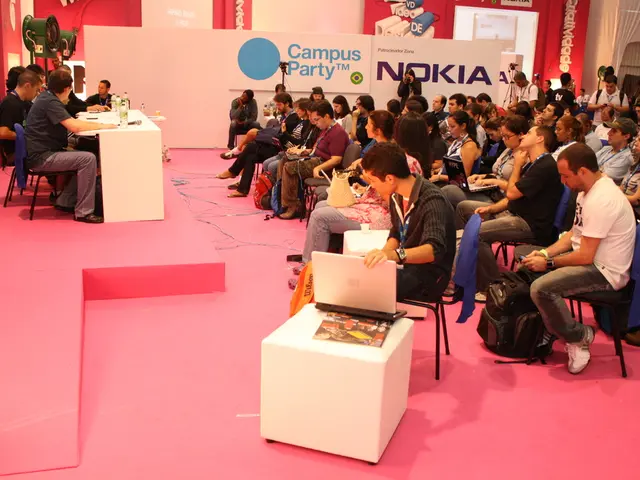Expansion of Political Micro-Influencer Promotion Strategies
In today's digital age, micro-influencers are playing an increasingly significant role in political marketing, particularly as more elections shift online. These individuals, who can be identified by analyzing audience demographics, engagement metrics, content style, and alignment with campaign values, are proving to be a cost-effective and powerful tool for political campaigns.
Micro-influencers, typically having between 5,000 and 100,000 followers on platforms like Instagram, Twitter, and YouTube, often boast strong personal connections with their audience, higher engagement rates, and greater trust among followers. This makes them ideal for mobilizing voters and influencing opinions in a more authentic and relatable manner compared to traditional celebrity influencers.
The current state of political micro-influencer marketing shows growing adoption and strategic importance, especially for engaging younger, digitally-active demographics. In Indonesia’s 2024 presidential election, political campaigns leveraged micro- and nano-influencers extensively to mobilize younger voters active on platforms like Facebook and TikTok.
Looking to the future, several trends are emerging. There will be an increased reliance on micro and nano influencers across political campaigns globally, with growing emphasis on influencer-created, platform-specific authentic content that drives real-time engagement and community interaction.
A shift towards authenticity and maintaining ethical standards is also expected, as the risk of misinformation or loss of trust could jeopardize campaign success. Political campaigns will need to carefully vet influencers to ensure credibility and relevance to the political issues.
The use of AI tools to better identify appropriate influencers and optimize campaign targeting will grow, helping brands and political actors find those with genuine audience trust and engagement, particularly in formats favored on different social media platforms (e.g., TikTok, Instagram, YouTube Shorts).
However, challenges remain, such as ensuring online digital engagement translates into real political participation rather than passive consumption of content. Globally, research and application of political influencer marketing are expanding beyond traditional Western markets, as seen in Indonesia’s rise.
In summary, political micro-influencer marketing is transitioning from volume-based broadcasting to quality-driven engagement, emphasizing authentic, ethical, and platform-tailored communication to inspire meaningful voter action in digital-first political landscapes. By partnering with micro-influencers, political campaigns can combat political misinformation, build up a groundswell of support for their cause or campaign, and connect with voters on a more personal level.
Read also:
- Today's most impactful photographic moments
- Support for Eric Adams in The Post's Letters to the Editor on August 13, 2025
- Roosting Shark and Rambunctious Red Squirrels: Unconventional House Rental in Yorkshire Involving Aquatic Marvel, Squirrely Mayhem, and Mystical Planning Regulations
- Legal Dispute Dismissed with Humor: Supreme Court Laughs off Another Civil Matter Mislabeled as Criminal Prosecution








